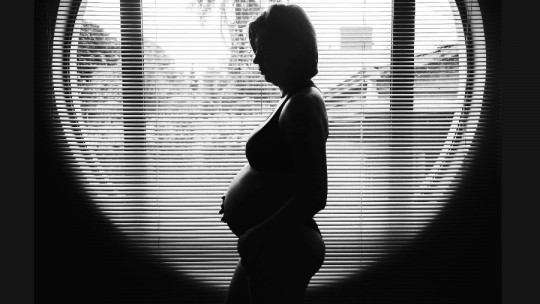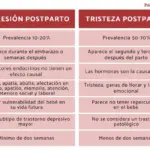Postpartum depression is a psychological disorder that affects some women who have given birth. It is a mood disorder that, as its name indicates, has symptoms similar to those of clinical depression, which is why it is capable of generating a lot of discomfort and is considered the reason why it is necessary to attend therapy.
This article is precisely about the latter: the characteristics of postpartum depression and its treatment in psychotherapy by professionals
What does this disorder consist of?
We know it as postpartum depression. a mood disorder based on depressive symptoms and linked to having given birth However, although it arises after a birth has occurred, it cannot be said that this event in itself is the cause of the appearance of this phenomenon; Just as happens with all psychological disorders.
Among the factors that contribute to its appearance there are both biological and environmental aspects; For example, it is known that sudden hormonal changes related to giving birth can have an emotional impact that is difficult to predict, and that the change in lifestyle that comes with having to care for that baby also can produce psychological exhaustion that predisposes the mother to develop a disorder
On the other hand, postpartum depression occurs in approximately 15% of women who have recently become mothers, and its variation is variable: it usually lasts about three months, but sometimes it lasts up to a whole year (especially if it is not treats).
Symptoms
The most common symptoms of postpartum depression are the following, although they do not have to appear all at once for a woman to be considered to have this disorder. In any case, This problem can only be properly identified and diagnosed by mental health professionals
1. Diffuse sadness
In postpartum depression It is very common for the woman who develops this disorder to feel extremely sad and many times they do not even know how to explain where exactly that feeling comes from, referring in any case to abstract themes: old age, death, etc. It can also go hand in hand with moments of difficult-to-control crying.
2. Irritability
Sudden mood swings appear and the propensity to experience outbursts of anger and arguments.
3. Search for isolation
Solitude is sought, stay away from social relationships as much as possible
4. Many moments of high anxiety
Another common symptom of this disorder is anxiety. Women with postpartum depression tend to enter a state of alert too frequently and with excessive intensity which does not correspond to what is happening around him.
5. Demotivation
Finally, another typical symptom is a lack of interest in getting involved in activities, which leads to doubts about whether one is capable of taking care of the baby.
Psychological therapy for postpartum depression
These are the key aspects of treating postpartum depression in psychotherapy.
1. Detection of problematic thoughts
In therapy, women experiencing postpartum depression learn to detect beliefs and thought patterns that keep the disorder afloat
2. Detection of problematic behaviors
Just as it is key to know how to identify mental processes that reinforce postpartum depression, psychologists also help patients detect habits and actions that have the same effect. Besides, working on changing habits in the relationship promoting a more equitable distribution of care tasks and responsibilities.
3. Anxiety management techniques
For women who experience symptoms linked to anxiety, therapy provides them with exercises and methods to manage this psychological state.
4. Self-motivation training
Another aspect of postpartum depression therapy has to do with helping patients to adopt habits capable of predisposing them to engage in stimulating activities This helps a lot, because keeping the mind and body active helps mitigate depressive symptoms.
5. Training in relational dynamics
Postpartum depression is also sustained by inadequate ways of relating to others. Thus, Psychologists help these patients recognize and address these problems
Are you looking for therapy for this problem?
If you live in the Seville area and are interested in having psychotherapy for postpartum depression, contact our team of psychologists. At Cribecca Psychology we offer professional support and treatment to overcome this disorder and make it disappear as soon as possible. Our contact details are available here.









